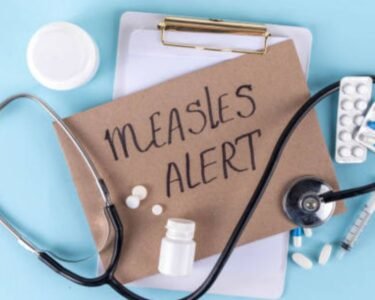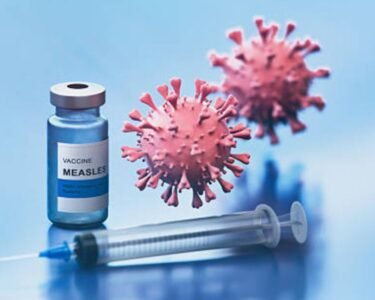A recent study suggests that drinking caffeinated coffee is safe for individuals with atrial fibrillation (A-fib) and may even help prevent the condition from recurring.
Atrial fibrillation, commonly referred to as A-fib, is a prevalent cardiac condition affecting over 10 million Americans. The disorder can cause palpitations and may lead to serious complications such as heart failure, blood clots, and stroke. For years, doctors have debated whether coffee—which can temporarily raise blood pressure and heart rate—triggers episodes of palpitations or chest fluttering that lead to lightheadedness or shortness of breath.
“Dr. Gregory Marcus, a cardiologist and medical professor at the University of California, San Francisco, who oversaw the DECAF (Does Eliminating Coffee Avoid Fibrillation?) study, explained that there is no formal recommendation for coffee consumption in patients with atrial fibrillation. ‘I frequently come across patients who have stopped consuming caffeinated coffee solely because their doctor advised them to do so due to atrial fibrillation,’ he said.”
The findings of the DECAF study—a four-year clinical trial investigating the effects of coffee consumption in people with a history of irregular heart rhythms that had either resolved or been treated—were presented on Sunday at the annual American Heart Association conference in New Orleans and published in JAMA, where Marcus serves as an assistant editor.
You may also like to read our articles on following topics:
- Is Single Origin Coffee Healthy?
- How Caffeine Can Help Relieve Headaches
- What is the Coffee Loophole to Lose Weight?
Study Participants and Methodology
Researchers recruited 200 seniors from Australia, Canada, and the United States who regularly drank coffee over the previous five years. Thirty percent were female, and the average age of participants was 70.
Participants were randomly divided into two groups for six months: one group abstained from caffeine entirely, while the other consumed at least one cup of coffee daily. Telehealth and video check-ins at one, three, and six months allowed participants to self-report their coffee and other caffeinated beverage consumption.
To determine if and when participants experienced recurring A-fib episodes, Marcus and colleagues relied on data from wearable heart monitors, implanted cardiac devices, and electrocardiograms (ECGs) obtained in clinical settings. The study also monitored episodes of atrial flutter, a related condition that causes irregular contractions of the heart’s upper chambers.
Find more articles on heart health and wellness in our blogs below:
| Foods to Avoid After Coronary Bypass Surgery | Why Is a Recipe Important Heartumental |
| Heartumental Recipe Guide from Homehearted | Foods to Avoid After Heart Valve Replacement |
Findings
Drinking habits were similar across both groups. While not all participants drank coffee at the start of the study, the number of daily coffee consumers remained comparable throughout the trial. Before the study began, 65% of participants in the non-coffee group and 60% in the coffee-drinking group reported that coffee had never triggered an A-fib episode.
During the six-month study, 111 participants—56%—experienced a recurring episode of atrial flutter. However, those who drank coffee had a lower recurrence rate: 47% compared to 64% in the non-coffee group. They also waited longer for their first episode.
(Of those in the no-coffee group, roughly one-third admitted to consuming at least one cup of coffee during the trial; the rest abstained entirely.)
According to Marcus, a daily cup of coffee is “perfectly safe.” He also noted that recent research suggests coffee may reduce the risk of heart disease and other metabolic disorders.
Interpretation and Expert Opinions
Marcus emphasized that the study demonstrates a cause-and-effect relationship, building on earlier observational research that suggested coffee drinkers had a lower incidence of A-fib. “I was somewhat surprised at the magnitude of how protective caffeinated coffee does seem to be to prevent atrial fibrillation,” he said.
Dr. Johanna Contreras, a cardiologist at Mount Sinai Fuster Heart Hospital in New York who was not involved in the study, highlighted that the key takeaway is the safety of a daily cup for those with A-fib rather than a protective effect. “There isn’t a strict guideline. Not everyone reacts to coffee in the same way,” she explained.
The study did not examine the effects of caffeinated beverages other than coffee, nor did it track participants’ dietary or exercise habits. Marcus noted that coffee drinkers might also be more physically active. The impact of consuming more than one cup of coffee per day remains unclear. While the study observed a protective effect with a single cup, some participants did drink more. Contreras emphasized moderation: “It’s different if people are drinking six or seven cups of coffee along with Celsius and Red Bulls.”
The exact reason why coffee was associated with fewer recurring irregular heartbeats is unknown. Marcus suggested that an anti-inflammatory compound in coffee—rather than caffeine—might reduce recurrence. Coffee may also influence the body’s adrenaline response, which could prevent A-fib episodes, particularly since people often report symptoms during periods of relaxation, such as after meals or while sleeping.
The trial only included participants who were not actively experiencing A-fib episodes. Therefore, the results may not apply to those with untreated A-fib. “Caffeine could definitely increase the pulse rate during that episode and therefore lead to worse symptoms if someone was in the midst of A-fib,” Marcus said.
For individuals who regularly consume coffee, Contreras reassured, “This shows you can have a cup of coffee in the morning and be OK if you have A-fib.”


